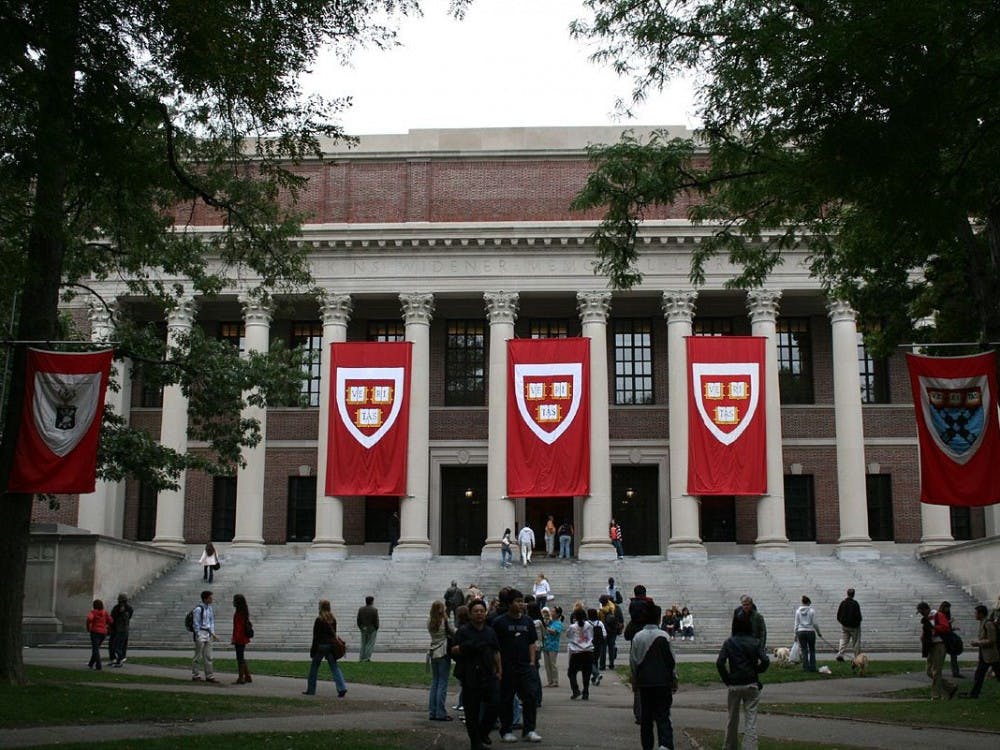Federal Judge Allison Dale Burroughs ruled Oct. 1 that Harvard’s admissions process did not “intentionally [discriminate] against Asian-American applicants” and cleared the university of all four counts of purported malpractice.
Within the week, Students for Fair Admission—the plaintiff representing Asian-American students in the case—filed a notice of appeal to the United States Court of Appeals for the First Circuit, continuing one of the most closely watched legal challenges to affirmative action. The case is expected to reach the Supreme Court within the next two years.
In the weeks leading up to the trial, which began Oct. 15, 2018, Duke professors fell on opposite sides of the aisle. While Walter Dellinger—Douglas B. Maggs professor emeritus of law—and Helen Ladd—Susan B. King professor emeritus of public policy and economics—defended Harvard, one professor led the charge for the plaintiff’s argument.
Professor of Economics Peter Arcidiacono, whose research served as the backbone for the case made by Students for Fair Admission, wrote an expert report for Students for Fair Admissions based on six years of of applicant-level admissions data provided by Harvard. In his report, he focused on the rating systems that the University uses to score applicants, which includes four component scores: extracurricular, academic, athletic and personal. Arcidiacono found the “personal” rating most at risk for subjectivity and implicit bias.
“Looking at the patterns in the personal rating made it very clear that it was used to implement racial preferences and penalties,” Arcidiacano said. “It was reading the files themselves that surprised me.”
Arcidiacono pointed to a specific Asian-American applicant—whose file he testified about in court—who “spent time in foster care, whose dad had a severe mental illness and whose mother was hurt in a drunk driving accident the summer before she applied.”
“She received the usual score of a 3 on the personal rating with the only comment being SS, which means standard strong,” Arcidiacano said. “There was nothing standard about her file.”
After the court ruling Oct. 1, Arcidiacono commented that many aspects of Harvard’s admissions process, including the assignment of an athletic rating to applicants who are not recruited athletes, continue to disadvantage Asian-Americans.
“The group that scores best on this rating?” Arcidiacono said. “White legacies.”
Senior Annie Yang, treasurer for the Duke Asian American Alliance, told The Chronicle that while Harvard and Duke’s admissions processes inherently perpetuate “race and class-based advantages, [she is] far more interested in systematically addressing structural inequalities and racial disparities in education that begin long before students apply to college.”
In the wake of the recent Harvard ruling, Yang called for Duke and its peer institutions to “seriously reconsider [their] policy of legacy admissions” and to address the lack of socioeconomic diversity within the applicants they admit.
Duke signed an amicus brief defending Harvard in 2018 along with 15 other universities, describing their admissions processes as “flexible enough to consider all pertinent elements of diversity in light of the particular qualifications of each applicant.”
Get The Chronicle straight to your inbox
Sign up for our weekly newsletter. Cancel at any time.

